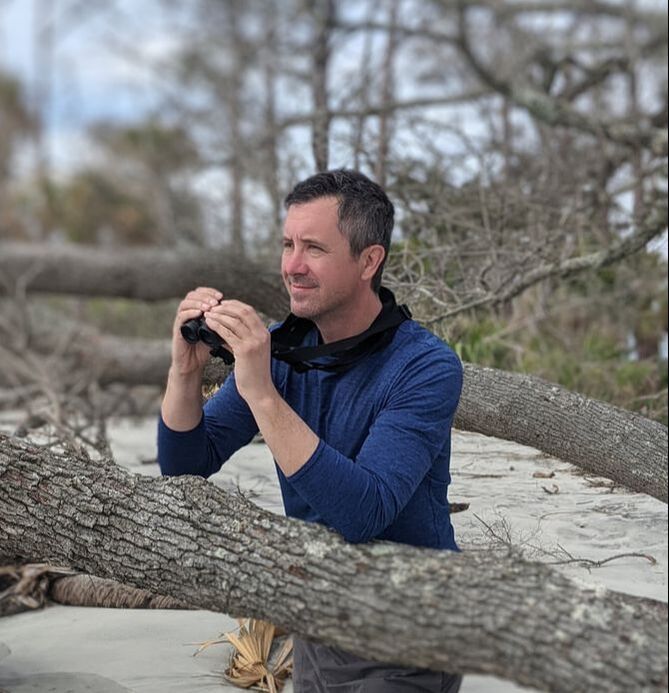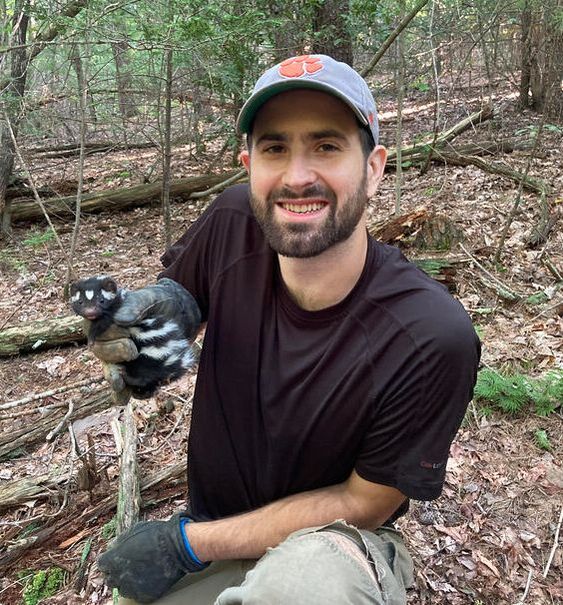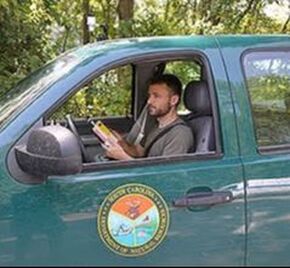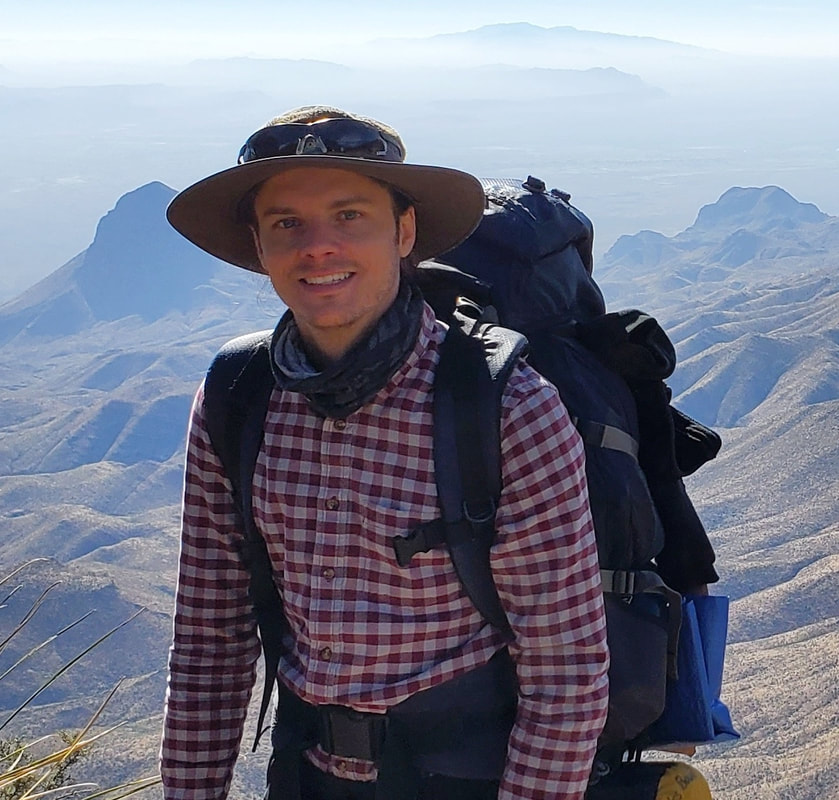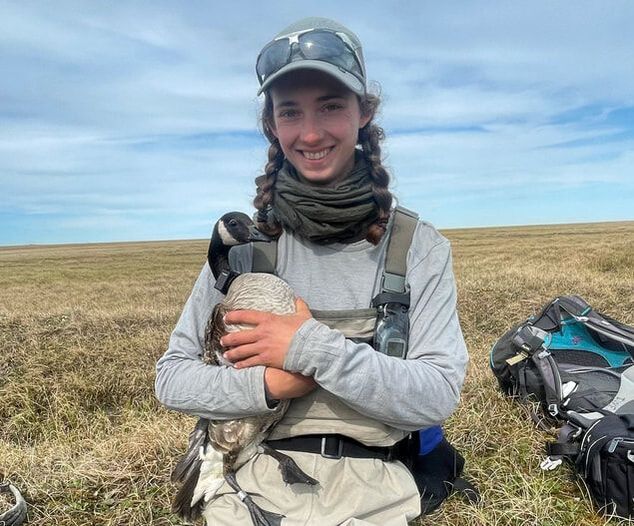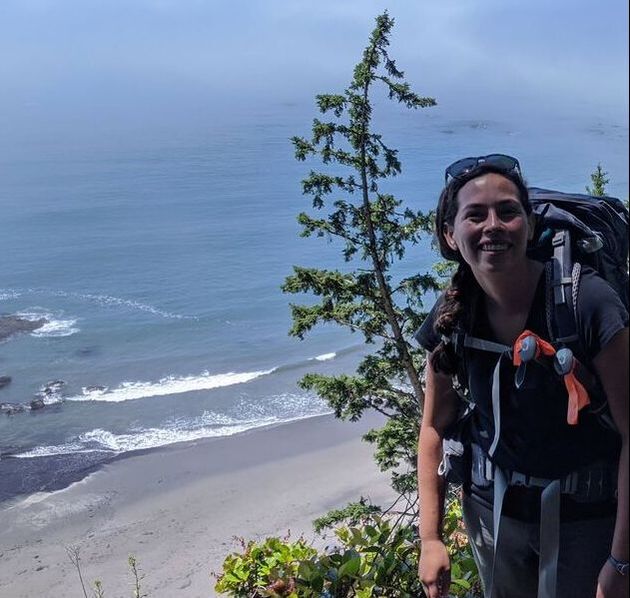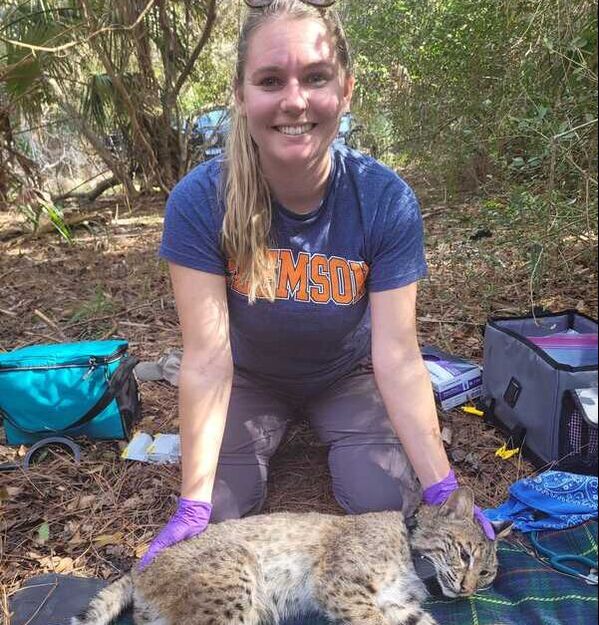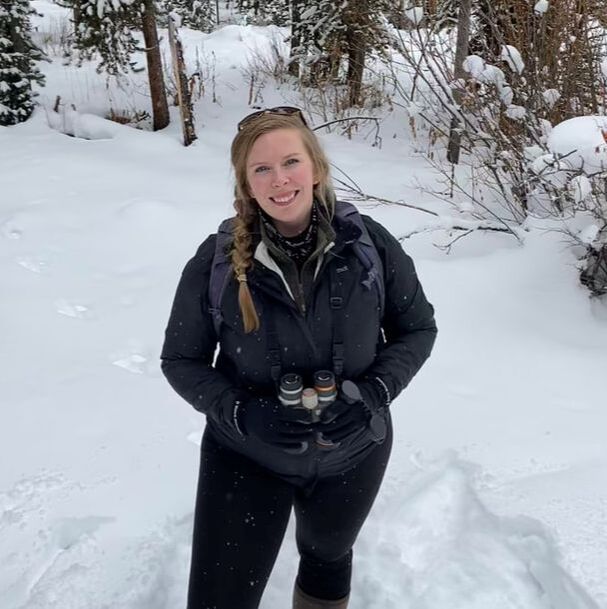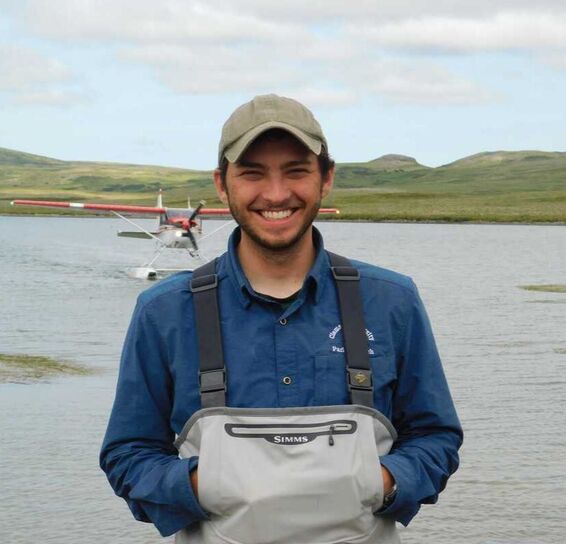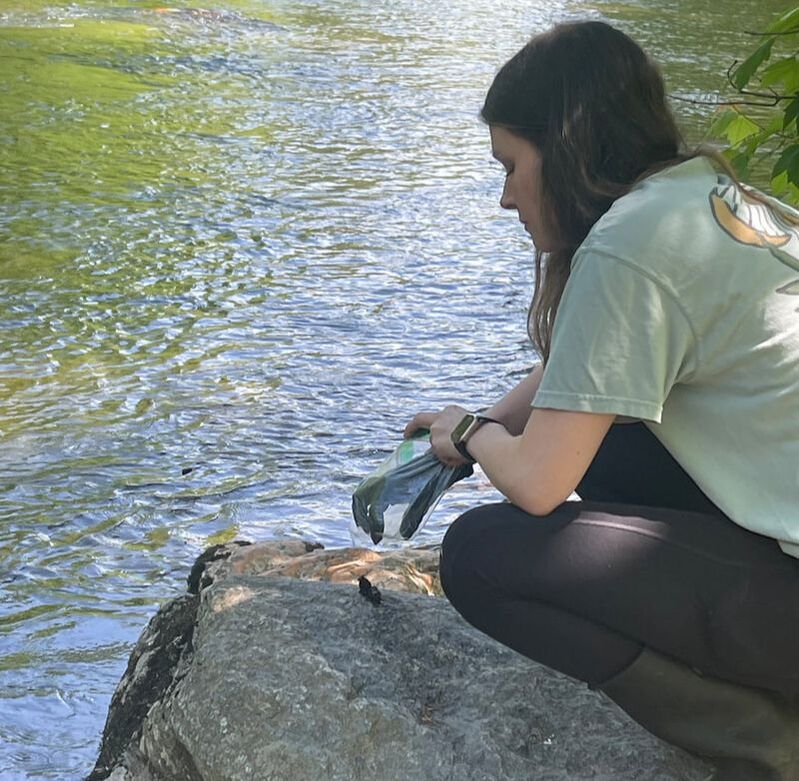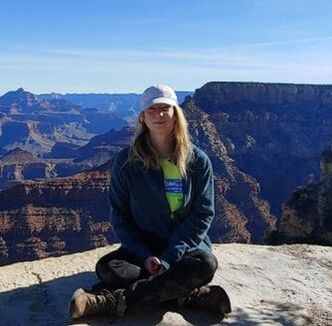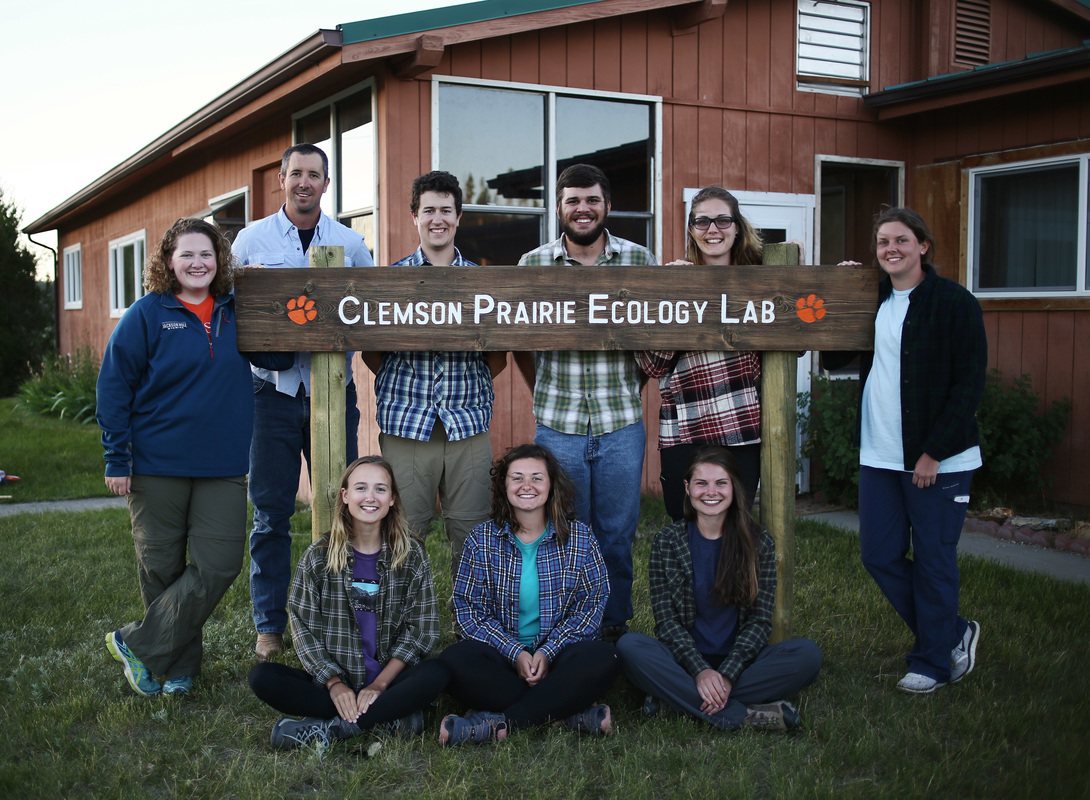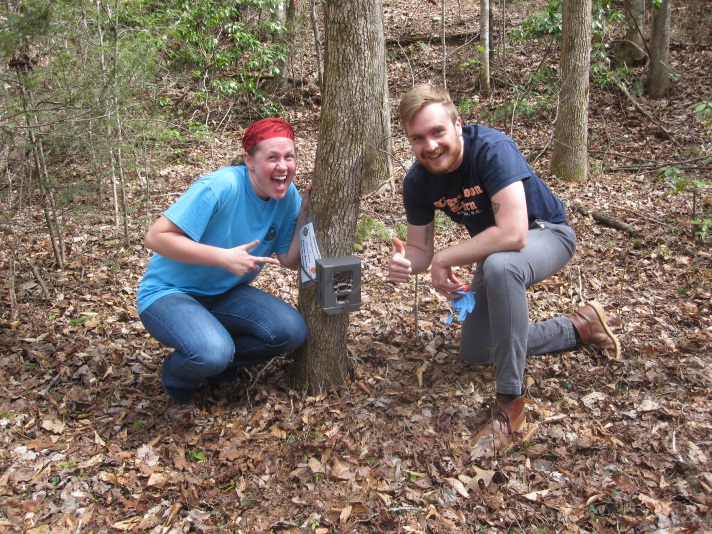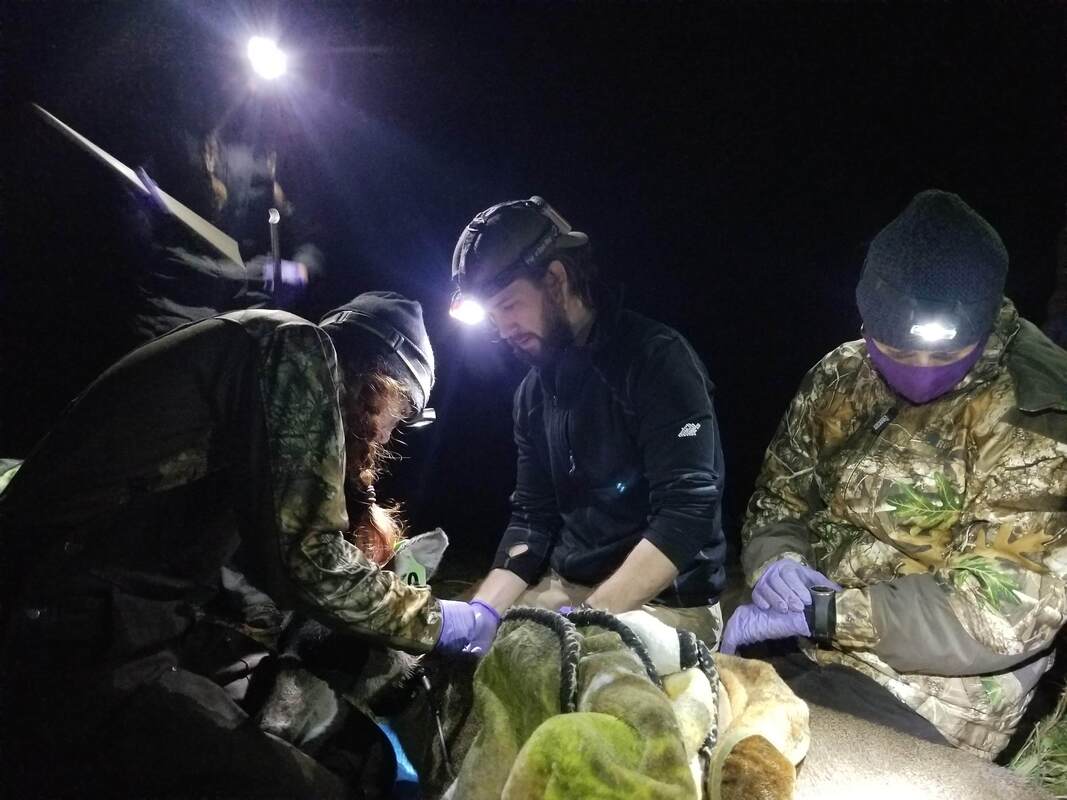Dr. David S. Jachowski, Associate ProfessorDavid Jachowski is an Associate Professor of Wildlife Ecology in the Department of Forestry Environmental Conservation at Clemson University. His research explores how environmental change is impacting wildlife populations, and our ability to manage and restore them. In addition to research close to home in the southeastern US, David created and directs the Clemson University Prairie Ecology Lab located in the Northern Great Plains, where he has worked as a federal biologist and now researcher for the past 23 years. He is also active internationally, conducting research in South Africa since 2007, and having served as US Peace Corps Volunteer and visiting scientist in the Philippines.
Affiliations:
Dr. Jachowski can be reached via email at: [email protected] |
Staff
Stephen Harris, Research Coordinator / Lab ManagerStephen is originally from Florida and has worked with many different taxa, from giant salamanders and gopher tortoises to fox squirrels and songbirds. He is passionate about wildlife conservation and always loves to learn about the natural world around him. Stephen earned his MS at Clemson University studying the ecology of eastern spotted skunks in the dry prairies of central Florida. Currently, as lab manager, Stephen assists on a variety of research projects ranging from weasels to black bears, and currently leads research on swamp rabbits and other small mammals of the southeast.
|
Ben Neece, Southeastern Bat Hub CoordinatorClemson University is home to the Southeastern Bat Hub which was created in 2022 to help coordinate North American Bat Monitoring Program (NABat) surveys in Alabama, Arkansas, Florida, Georgia, Kentucky, Louisiana, Mississippi, North Carolina, South Carolina, and Tennessee. Ben, who previously completed an MS degree in our lab on establishing NABat in South Carolina prior to traveling the country assisting states with setting up NABat programs, is now the coordinator of the southeast hub. He works with partners in each state to design, conduct and analyze standardized surveys for bats. Learn more about the hub here.
|
Wes Boone, Postdoctoral Research Associate
Wes is investigating carnivore community dynamics and how carnivores structure prey populations and influence prey behavior using field-collected datasets (regionally) and meta-analytical approaches (globally). As a researcher, Wes seeks to provide insights that better enable conservation and management of natural resources by conducting applied and theoretical research with an interdisciplinary approach. Wes gets excited by good questions, clean datasets, and code that runs. An alum of Clemson’s Wildlife and Fisheries Biology program (B.S.), Wes is thrilled to return to Clemson following M.S. and PhD degrees from the University of Florida and a Postdoctoral Research Associate stint at North Carolina State University.
|
Zoey Chapman, Research TechnicianGrowing up in the mountains of West Virginia, Zoey developed a passion for the natural world and decided to pursue a career in wildlife conservation. Since obtaining a B.S. in Wildlife and Fisheries Biology from Clemson in 2020, she has worked as a technician on a variety of projects ranging from bats and salamanders to waterfowl and bobcats. She is currently working on an artificial intelligence image recognition model for identifying wood rats. If she’s not in the field, you can usually find her reading under the nearest shady tree.
|
Graduate Students
Graduate students in the lab are encouraged to conduct sound, applied, collaborative science that both addresses the needs of partners and allows the student to develop their own unique interests and questions. The overall goal is to help students develop the skill sets that will set them up to excel in their future careers. To achieve this, students are encouraged to take themselves seriously, while also leaving their egos at the door and remaining humble and open to new ideas from diverse perspectives. In general we learn from, challenge and support each other as we attempt to address a variety of pressing conservation issues.
Chloe Horton, MS StudentChloe is a MS student interested in mesocarnivore ecology. She graduated from Middlebury College with a joint degree in Environmental Studies and Conservation Biology and a minor in Psychology. Chloe worked as a technician on a variety of field projects across the United States, focusing her skill set on carnivore research and management for federal and state agencies. As a woman of color, she hopes to increase representation as well as promote diversity, equity, and inclusion in the wildlife field.
|
Meghan Keating, PhD CandidateMeghan is a PhD student studying coastal bobcat ecology in the southeastern U.S., with a focus on non-target anticoagulant rodenticide exposure. Her research aims to shed light on bobcat populations across islands with differing levels of human development, including comparisons of survival, movement patterns, and prey composition. Meghan earned her B.S. in Fish, Wildlife, and Conservation Biology at Colorado State University, after which she spent three years as a field technician at the USGS’s Western Ecological Research Center focusing on duckling brood pond use and survival, and mesopredator interactions with nesting waterfowl. She earned her M.S. at the University of Nevada, Reno, by developing statistical models to describe the ecological drivers of animal movement. She is passionate about collaborative research, strong methodology, and mesopredator conservation. More information can be found on her website, and feel free to reach out if you are a current or aspiring researcher!
|
Dana Nelson, PhD CandidateDana grew up on a family farm in Kansas and earned a B.S. in Fisheries, Wildlife, and Conservation Biology at Kansas State University. She earned a M.S. degree in Wildlife Science at Purdue University, where she used spatial capture-recapture methods to learn about small mammal population responses to forest management. Dana has coordinated and conducted fieldwork on a variety of small mammals and mesocarnivores since 2013, including a role managing recovery efforts for black-footed ferrets in Wyoming. She is passionate about conservation of grassland ecosystems and is motivated to conduct collaborative, applied research that benefits prairie wildlife management and conservation decisions. For her dissertation, Dana is studying movements, habitat relationships, and demography of swift foxes reintroduced to the Fort Belknap Reservation in Montana.
|
John Nettles, PhD StudentJohn is a PhD student studying population estimation methods for black bear in the Blue Ridge Mountains of South Carolina, comparing estimates based on camera traps and hair snares. He earned his B.S. in Wildlife Biology and a minor in statistics from the University of Montana and his M.S. in Parks, Recreation, and Tourism Management in the Park Solutions Lab at Clemson University where he focused on bear viewing in Alaska. John's research interests include quantitative methods, carnivore ecology, population dispersal, and human-wildlife conflict. He has studied giant pandas in China, common loons in Glacier National Park, and most recently worked as the assistant project coordinator for a statewide bobcat population assessment in California.
|
Brianna Pruitt, MS studentBrianna has been passionate for wildlife and the outdoors her entire life. Growing up in the middle of the Great Smoky Mountains gave her endless opportunities to enjoy unspoiled nature and observe wildlife in its natural habitat. Brianna has a wide range of interests, but her greatest ones are the conservation of native species and the preservation of their environments. As an enrolled member of the Eastern Band of Cherokee Indians she hopes her research will also benefit the management of tribal lands. It's important for her work to honor the Cherokee heritage that fostered her fundamental belief that humanity should coexist with nature and inspires her to find ways to protect them and their natural habitats. For her thesis research, Brianna is investigating how big game (elk, bear and deer) and furbearers respond to wildlife overpasses along the last 15 miles of the Blue Ridge Parkway that bisects sovereign Cherokee lands.
|
Katie Steen, MS StudentKatie is a M.S. student working on small mammal community ecology in high elevation forests. She earned a B.S. in Biology and a minor in Interdisciplinary Liberal Arts at University of New Mexico. She then spent four years as a technician for the US Forest Service in Montana, California, and Washington. Through seasonal work she was able to satisfy her interest in both traveling to new parts of the country and learning new skills for fieldwork. Her work focused on raptor surveys, habitat evaluations, and camera trapping. She is passionate about protecting ecological integrity through thoughtful wildlife management and hopes to better understand natural systems through her research. In her thesis project she uses the AHDriFT system to monitor 6 hard-to-detect small mammals listed in the South Carolina State Wildlife Action Plan to access their range, habitat associations, and species interactions.
|
Lab Alumni
Post-doctoral Fellows
Courtney Marneweck, Post-doctoral Fellow (2019-2021). Currently the Conservation Science Data Coordinator for the Giraffe Conservation Foundation.
Sara Bombaci, Post-doctoral Fellow (2018-2019). Currently an Assistant Professor at Colorado State University.
Sara Bombaci, Post-doctoral Fellow (2018-2019). Currently an Assistant Professor at Colorado State University.
Graduate students
Eduardo Rosales, MS (2021-2024), "Tri-colored bat habitat use and selection in northwestern South Carolina."
Mike Muthersbaugh, PhD (2018-2023), "Drivers of white-tailed deer (Odocoileus virginianus) behavior, survival and population growth in the Piedmont of South Carolina." Currently a Database Administrator with New York State Department of Environmental Conservation and SUNY ESF.
Alex Jensen, PhD (2018-2023), "Top-down effects and resource selection by coyotes in South Carolina." Currently a Post-doctoral Research Associate with the North Carolina Museum of Natural Sciences and NC State University.
Keifer Titus, PhD (2018-2023), "An integrative approach to modelling human-wildlife coexistence landscapes in the Northern Great Plains." Currently a Post-doctoral Research Associate at Oregon State University.
Elizabeth Saldo, MS (2019-2022), "Effects of wild pigs and supplemental feeding on wildlife in the piedmont region of South Carolina." Currently a research associate with University of Texas Rio Grande Valley.
Anna Siegfried, MS (2019-2021), "Mesopredator detection and eastern spotted skunk den site selection." Currently a Law Enforcement Officer with the U.S. Forest Service.
Sze Wing Yu, MS (2018-2021), "American bison impacts on riparian and wallow vegetation communities." Currently a biologist with the U.S. Fish and Wildlife Service.
Kyle Shute, MS (2018-2020), "Habitat relationships of bat species of conservation concern in coastal South Carolina." Currently a biologist with the Southern Appalachian Highlands Conservancy.
Laura Gigliotti, PhD (2015-2020), "Individual, population and community-level drivers of cheetah (Acinonyx jubatus) population dynamics." Currently an Assistant Unit Leader of the West Virginia Cooperative Fish and Wildlife Research Unit (USGS).
Blaise Newman, MS (2018-2020), "Winter torpor and roosting ecology of tri-colored bats (Perimyotis subflavus) in trees and bridges." Currently a PhD student at University of Georgia.
Andrew Butler, MS (2016-2019), "Behavior and population ecology of swift fox in northeastern Montana." Currently a PhD student at University of New Hampshire.
Pallavi Sirajuddin, MS (2016-2018), "Vulnerability of tri-colored bats (Perimyotis subflavus) to white-nose syndrome in the southeastern United States." Currently a Bat Biologist/Field Coordinator for Western EcoSystems Technology.
Katie Teets, MS (2016-2018), "Assessment of Data Collection Techniques and White-nose Syndrome effects on Bat Communities of South Carolina." Currently a biologist with Florida Fish and Wildlife Resources Commission.
Stephen Harris, MS (2016-2018), "Florida spotted skunks in a dry prairie ecosystem." Currently the Lab Research Coordinator at Clemson University.
Robin Eng, MS (2015-2018), "Eastern spotted skunk occupancy and rest site selection in hardwood forests of the southern Appalachians" Currently an Ecological Program Specialist with the Pennsylvania Department of Conservation of Natural Resources.
Jennifer Froehly, MS (2016-2018), "Loggerhead shrike habitat selection in South Carolina." Currently a biologist with US Fish and Wildlife Service.
Ben Neece, MS (2015-2017), "North American Bat Monitoring Program (NABAT) in South Carolina: acoustic detection and landscape occupancy by bats." Currently the Southeast Bat Hub Coordinator.
Nic McMillan, MS (2015-2017), "Plant community responses to bison reintroduction within Montana's Northern Great Plains." Currently an Assistant Professor of Grazing Lands Ecology at University of Nebraska - Lincoln.
Shefali Azad, MS (2014-2016), "Population dynamics of black bears in northwestern South Carolina." Currently a Data Manager with Archbold Biological Station.
Mike Muthersbaugh, PhD (2018-2023), "Drivers of white-tailed deer (Odocoileus virginianus) behavior, survival and population growth in the Piedmont of South Carolina." Currently a Database Administrator with New York State Department of Environmental Conservation and SUNY ESF.
Alex Jensen, PhD (2018-2023), "Top-down effects and resource selection by coyotes in South Carolina." Currently a Post-doctoral Research Associate with the North Carolina Museum of Natural Sciences and NC State University.
Keifer Titus, PhD (2018-2023), "An integrative approach to modelling human-wildlife coexistence landscapes in the Northern Great Plains." Currently a Post-doctoral Research Associate at Oregon State University.
Elizabeth Saldo, MS (2019-2022), "Effects of wild pigs and supplemental feeding on wildlife in the piedmont region of South Carolina." Currently a research associate with University of Texas Rio Grande Valley.
Anna Siegfried, MS (2019-2021), "Mesopredator detection and eastern spotted skunk den site selection." Currently a Law Enforcement Officer with the U.S. Forest Service.
Sze Wing Yu, MS (2018-2021), "American bison impacts on riparian and wallow vegetation communities." Currently a biologist with the U.S. Fish and Wildlife Service.
Kyle Shute, MS (2018-2020), "Habitat relationships of bat species of conservation concern in coastal South Carolina." Currently a biologist with the Southern Appalachian Highlands Conservancy.
Laura Gigliotti, PhD (2015-2020), "Individual, population and community-level drivers of cheetah (Acinonyx jubatus) population dynamics." Currently an Assistant Unit Leader of the West Virginia Cooperative Fish and Wildlife Research Unit (USGS).
Blaise Newman, MS (2018-2020), "Winter torpor and roosting ecology of tri-colored bats (Perimyotis subflavus) in trees and bridges." Currently a PhD student at University of Georgia.
Andrew Butler, MS (2016-2019), "Behavior and population ecology of swift fox in northeastern Montana." Currently a PhD student at University of New Hampshire.
Pallavi Sirajuddin, MS (2016-2018), "Vulnerability of tri-colored bats (Perimyotis subflavus) to white-nose syndrome in the southeastern United States." Currently a Bat Biologist/Field Coordinator for Western EcoSystems Technology.
Katie Teets, MS (2016-2018), "Assessment of Data Collection Techniques and White-nose Syndrome effects on Bat Communities of South Carolina." Currently a biologist with Florida Fish and Wildlife Resources Commission.
Stephen Harris, MS (2016-2018), "Florida spotted skunks in a dry prairie ecosystem." Currently the Lab Research Coordinator at Clemson University.
Robin Eng, MS (2015-2018), "Eastern spotted skunk occupancy and rest site selection in hardwood forests of the southern Appalachians" Currently an Ecological Program Specialist with the Pennsylvania Department of Conservation of Natural Resources.
Jennifer Froehly, MS (2016-2018), "Loggerhead shrike habitat selection in South Carolina." Currently a biologist with US Fish and Wildlife Service.
Ben Neece, MS (2015-2017), "North American Bat Monitoring Program (NABAT) in South Carolina: acoustic detection and landscape occupancy by bats." Currently the Southeast Bat Hub Coordinator.
Nic McMillan, MS (2015-2017), "Plant community responses to bison reintroduction within Montana's Northern Great Plains." Currently an Assistant Professor of Grazing Lands Ecology at University of Nebraska - Lincoln.
Shefali Azad, MS (2014-2016), "Population dynamics of black bears in northwestern South Carolina." Currently a Data Manager with Archbold Biological Station.
Undergraduate Researchers
Each year we have 15-25 undergraduates undertake independent or collaborative research projects with our lab. Currently this involves 3-4 dedicated "Creative Inquiry" courses that lab members runs each semester. More information on these courses and how to get involved in our research can be found under the "Prospective Students" tab..
Proudly powered by Weebly
